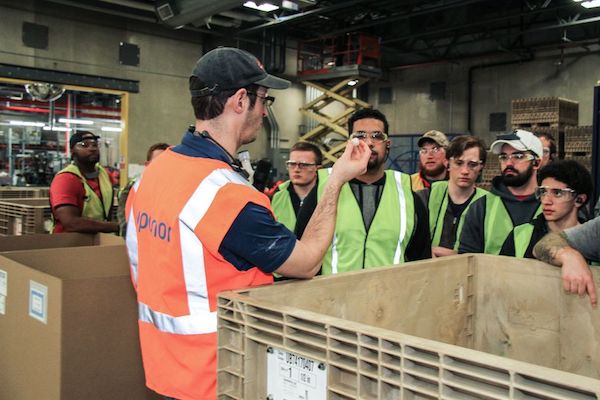When an employee makes a mistake on any building site, punishments like suspension, revoked duties, and all manner of other procedures can seem like the most obvious way to stay safe. Unfortunately, while it’s not unheard of for poor staff members to create dangerous situations, a deeper look at these issues may reveal that management is actually to blame a surprising amount of the time.
After all, a team is only ever as good as the people in charge and, while management may be more than happy to take credit for their team’s successes, it’s also vital that they realize the wider implications of their inadequacies. As such, while disciplinary action may still be necessary to remove risky workers in the moment, it’s also important to consider the following ways that their mistake might actually be more of a reflection on management than anything else.

# 1 – Lacking training
In the vast majority of cases, manufacturing mistakes can be traced back to a lack of adequate training, be that in the use of machinery (which we’ll discuss more in the next step), or through generally poor training in crucial processes including bricklaying, welding, and so on. As such, whenever an employee makes a mistake, it’s crucial to consider whether a simple lack of knowledge that you should have supplied is at fault and, if so, where improved and trackable training can be implemented moving forward to avoid a recurrence in the future.
# 2 – Inexperienced use of equipment
If teams are left to their own devices where equipment is concerned, then management must take its share of responsibility for accidents or mishaps. After all, as much as you need to ensure OSHA compliance across your onsite equipment, safety during usage is also reliant on the hiring (or training) of staff members with an extensive understanding of proper usage across even heavy machinery. Overseeing that every team member is applying safe and informed usage at all times is particularly a management responsibility, and this ongoing presence is guaranteed to reduce risks or mistakes based on things like improper safety equipment, rushed usage, or usage that cuts crucial corners such as expected steps for machinery, etc.
# 3 – A rushed work ethic
Speaking of cut corners, team members who are always pressing for time can not only create inadequate results but also leave themselves at a far higher risk of onsite injuries. While some team members will simply be keen to get the job done at the cost of quality, this most often happens as a result of unrealistic timelines set at management level. As such, instead of automatically blaming team members for things like shoddy workmanship, it’s also worth considering the timeframes you provide for every job, and whether or not those realistically provide time for the safe and quality handling of often demanding tasks.
Poor performance is never something you should overlook, but it is something that should have you considering whether you’re really offering the management your team needs to succeed on every possible level.




Join the conversation: